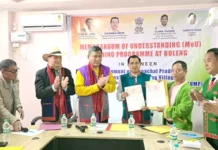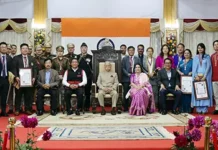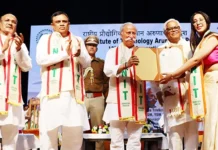[ Badak Yomgam ]
The need for developing rural tourism responsibly in Arunachal Pradesh is rooted in the necessity to balance its growth with the preservation of the state’s unique environmental, social and cultural heritage, particularly within its rural communities.
Developing tourism responsibly aligns with sustainable development, defined as “Development that meets the needs of the present without compromising the ability of future generations to meet their own needs” (World Commission on Environment and Development, 1987).
This approach necessitates a commitment to the environment, conservation of resources, protection of biodiversity and mitigation of pollution, which are critical in preserving the appeal of rural areas for tourism. Arunachal is a biodiversity hotspot with significant forest cover, numerous rivers and fragile mountainous terrain. Tourism development must prioritise minimising environmental impact to protect this ecological sensitivity.
Furthermore, sustainable economic growth and prosperity through responsible resource management, creating decent work opportunities in rural tourism,and promoting related innovation is equally important. Promoting responsible tourism that respects the environment and local cultures can be a significant source of income and employment for rural communities in Arunachal.
Developing local skills and entrepreneurship through education and skill development can also create sustainable livelihood opportunities for the youths in the tourism sector.
The principle of intergenerational equity highlights the responsibility to consider the needs and wellbeing of future generations of both tourists and host communities in rural tourism development. This means making conscious choices and implementing strategies that aim for progress that is environmentally sustainable and ethically guided.
In the context of Arunachal’s rural tourism, this translates to balancing tourism development with the protection of its biodiversity hotspot status, practicing sustainable resource management, especially in areas with tourism potential, respecting indigenous communities’ land rights and cultural preservation, fostering sustainable economic growth through tourism initiatives that benefits local communities, and addressing infrastructure challenges sustainably to support tourism while minimising negative impacts.
Arunachal faces infrastructure challenges, including the need for buildings, roads and communication network. These developments must be undertaken in a way that minimises environmental damage and ensures resilience to the region’s climate and terrain. Improving connectivity to remote rural areas for tourism is important, but it must be done in a manner that respects both the environment and local communities.
Good governance and planning, characterised by transparency, accountability and community participation are crucial for the effective implementation of developing rural tourism responsibly. This requires a holistic and integrated approach to tourism planning that considers environmental, social and economic factors. Ensuring the active participation of local communities in decision-making processes related to tourism projects is vital for their acceptance and long-term sustainability.
The Environment, Forest & Climate Change Department in Arunachal plays a crucial role in balancing conservation and tourism development. Community-based tourism initiatives can empower local communities to promote cultural and environmental tourism behaviour and sustainable development practices among both tourists and local population.
Developing Arunachal’s rural tourism sector responsibly is a continuous process that requires collaboration between the government, local communities, civil society organisations, tourism operators, and other stakeholders. By prioritising environmental sustainability and respecting indigenous rights and culture while fostering inclusive economic growth, the state can achieve tourism development that benefits all its people and preserve its unique natural and cultural heritage for future generations. (The contributor is a PhD scholar and NEHU, Shillong)



